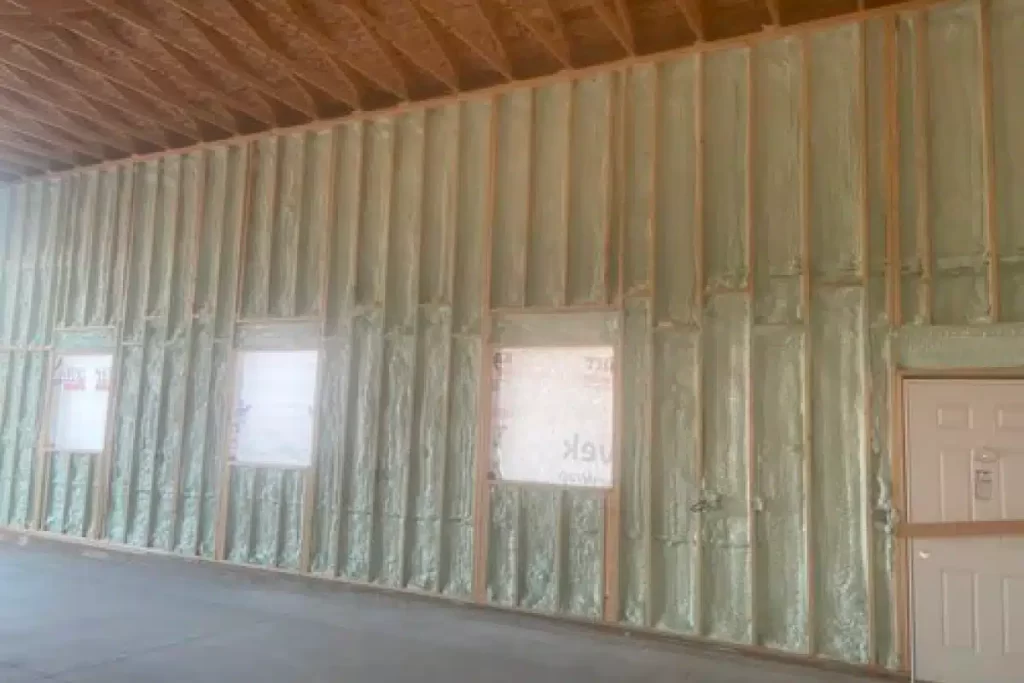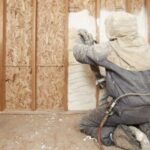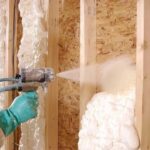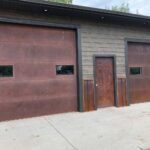What is Spray Foam Insulation?

Spray foam insulation is an innovative insulation material commonly used to seal walls, floors, and ceiling cavities against air and moisture. Spray foam starts as a liquid which expands upon application and fills even the tiniest cracks and gaps. This expansion property makes it highly effective at providing a seamless barrier, increasing a building’s energy efficiency, and offering structural support.
Types of Spray Foam Insulation
| Type | Description | Best Used For |
|---|---|---|
| Open-Cell Foam | Lightweight, flexible foam with a lower R-value, providing soundproofing but moderate insulation. | Interior walls, soundproofing, and lower-cost projects |
| Closed-Cell Foam | Dense foam with a high R-value, creating a solid, moisture-resistant, and rigid layer. | Exterior walls, roofing, and high-performance insulation projects |
Closed-cell foam is generally preferred for areas with high moisture levels or exterior applications, while open-cell foam works well for interior spaces needing soundproofing.
Benefits of Spray Foam Insulation
Energy Efficiency: Spray foam creates a solid air barrier that reduces heating and cooling costs by up to 50% in some cases. Sealed gaps prevent unwanted air exchange, which keeps indoor temperatures stable.
Moisture and Mold Resistance: Closed-cell spray foam creates a moisture barrier, which reduces the risk of mold and water damage. This is especially beneficial in humid climates or for structures exposed to water.
Structural Reinforcement: Closed-cell foam provides added structural support due to its rigid nature, which helps reinforce walls and roofs against strong winds or other forces.
Long-Lasting Performance: This type of insulation has a lifespan of 20-30 years, and because of that, it often requires fewer replacements and less maintenance compared to traditional insulation options.
Improved Air Quality: By sealing off air leaks, spray foam helps keep dust, allergens, and pollutants from entering the building, promoting better indoor air quality.
Spray Foam vs. Traditional Insulation
| Feature | Spray Foam Insulation | Traditional Insulation |
|---|---|---|
| Installation | Quick but requires specialized equipment | Easier DIY options but less effective at sealing |
| Air Barrier | Excellent, seamless barrier | Limited; often allows air leakage |
| R-Value | High (up to R-7 per inch for closed-cell) | Moderate (typically R-3 to R-4 per inch) |
| Moisture Resistance | High (especially with closed-cell foam) | Low to moderate, depends on material |
| Longevity | 20-30 years | 10-15 years |
Is Spray Foam Insulation Right for You?
Choosing spray foam insulation, or not, first of all depends on your specific needs. For areas which require high insulation performance, moisture resistance, or structural reinforcement, spray foam—particularly closed-cell—will be an excellent choice. However, it may come at a higher upfront cost compared to traditional materials. Consulting with an insulation expert can help determine which type of insulation best suits your building’s design and your environmental needs.
For professional, reliable insulation services, contact Seamless Systems at (307) 680-6103




